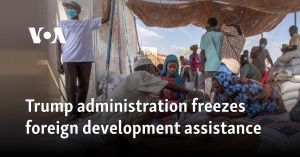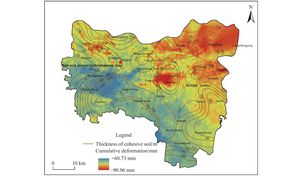The opening of the first private Assisted Reproduction Center, Genera, marks a significant milestone for couples facing infertility on the island of Sardinia. Located in Cagliari, this newly established facility is set to provide comprehensive reproductive health services, including advanced fertility treatments and genetic testing not available at local public hospitals.
Professor Giovanni Monni, who directed the Department of Gynecology and Obstetrics at the Microcitemico hospital for over 40 years, now stands at the forefront of this new venture. He emphasizes the dire need for such services, as Sardinia grapples with one of the lowest birth rates and the highest average maternal age in Italy. "On Sardinia, we have the highest average age for the birth of a child, which means women are starting their search for motherhood later than the Italian average," he stated.
The Genera Center, opened last July, offers assisted reproductive techniques such as heterologous fertilization, which involves using donor gametes. Both egg and sperm donation has been permitted since 2014, but obtaining subsidies for these procedures has been cumbersome for Sardinian couples, who are often forced to seek treatment on the Italian mainland or abroad. Currently, the only public facilities provide limited services, primarily focused on homologous fertilization using the couple's gametes.
Interestingly, to claim health coverage for services involving donor gametes, couples must seek care from accredited institutions outside Sardinia, illustrating the paradoxical situation faced by patients. This has left many couples feeling frustrated and deprived of local options.
Genera aims to fill this gap by introducing various fertility-enhancing services. These include not only fertilization techniques but also fertility preservation through cryopreservation, facilitating social freezing for personal or medical reasons. The center addresses the broader implications of fertility issues by providing genetic testing of embryos prior to implantation—a service previously unavailable on the island.
The circumstances surrounding fertility on Sardinia are complex. Sardinians face societal pressures and practical concerns delaying parenthood, such as educational pursuits, career development, and general life stability. According to data, the average age of women giving birth to their first child is 33, compared to the national average of 31 years old. This trend reflects broader issues surrounding the need for more comprehensive reproductive health services on the island.
Professor Monni emphasizes the importance of access to these services, highlighting the heightened risks couples face as they postpone starting families. "Our center can address all needs related to diagnosis and treatment of infertility, providing hope for couples who previously had to travel for these options," he remarked, signifying the emotional relief for many couples on the island who have been yearning to start families.
With the Genera Center, Sardinian couples now have the opportunity to pursue their hopes of parenthood locally. The facility stands as not just another medical institution but as a beacon of hope for many aiming to overcome the societal and personal hurdles to conceive.
Reflecting on the broader impact of the center's opening, it serves as more than just medical assistance; it provides psychological and emotional support to couples who might feel isolated due to their fertility struggles. Many residents have spoken affirmatively about the center's potential to change the narrative surrounding parenthood and fertility on the island.
Moving forward, the Genera Center is poised to become instrumental not only for individuals seeking reproductive assistance but also for policymakers addressing demographic challenges on Sardinia. With its advanced services and compassionate care, it symbolizes significant progress toward meeting the reproductive health needs of the community.
For Sardinian couples, the center provides renewed hope, allowing them to seek assistance without the burden of travel and the uncertainty of treatment abroad. The Genera Center is more than just the first private reproductive establishment on the island; it's the start of something new for families hoping to grow.



